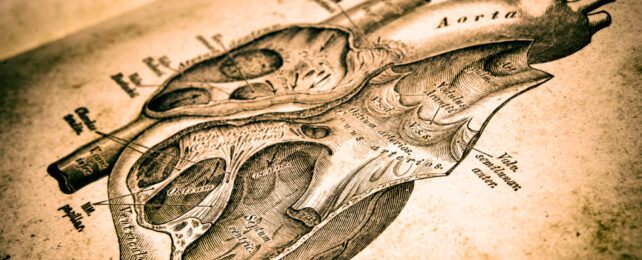History Can Help Us Understand Organ Transplant Personality Changes, Says Expert
From vegetarians craving meat to changes in sexual preference, some organ transplant patients report changes to their personality reflecting those of the organ donor.
A 2024 study claims to challenge "conventional views of memory and identity" by suggesting organs carry memories and emotions and that the findings raise "ethical and philosophical questions" about transplantation.
In medical history, though, both are already familiar themes. Physician J. Andrew Armour argued that the heart holds memories and feelings in 1991. Nor is there anything new about suggesting organ transplants raise ethical and philosophical questions – they've been controversial since their inception in the 1950s.
The study's authors do not engage with the cultural histories of organ donation, or its ethnic, religious and historical contexts. Without an understanding of these, research – and media coverage – can perpetuate Frankenstein-style horror myths about transplantation, already an emotive and ethical minefield.
For decades, researchers have studied whether memories and emotions could linger in the heart, and histories of medicine and emotion show why the question is important. It is the heart, the centre of the self – valued in all cultures from ancient Egyptians' heart weighing to present-day Valentine's Day cards – that speaks emotional truths.
I'm a historian of medicine, emotion and the body. In 2010, I wrote Matters of the Heart: History, Medicine, and Emotion, a history of the emotional, physical and spiritual significance of the heart. My research shows that, before the emergence of scientific medicine, the heart was considered the centre of emotion and memory.
English physician William Harvey popularised the circulatory blood model in 1628 – first theorised by 13th-century Arab physician Ibn al Nafis. This replaced Galen's 2,000-year-old theory that blood was produced in the liver and burned by the body.

Once the heart was understood to be a pump, the brain was promoted to the centre of thought, memory and emotion – helped by René Descartes' whose 1949 book, Passions of the Soul, explored the relationship between mind and body. Gradually, this secularised view of the heart became widespread – the mechanical pump model is still taught in schools.
And, while few cardiologists believe the heart – the centre of a complex chemical system – is a simple organ, most prefer not to think of the heart as the seat of the soul.
"How then", one famous heart transplant surgeon asked me, "could I cut it out of a man's body?"
Not all organs are emotionally meaningful. I research face transplants – faces are even more emotionally significant than hearts. Faces and hearts communicate feelings: faces convey expression while hearts beat faster when anxious or in love.
It's difficult to get sentimental about the spleen, a kidney, or a small bowel. So, then, it's not all organs that carry memories and meanings, but hearts, in particular.
But what about xenotransplants, when non-human tissues, cells and organs are used to treat humans. Will recipients of genetically modified pig hearts remember their time at the trough?
There is growing evidence to suggest cellular memory exists in some form – that is, cells retaining information about past events that are stored outside of the brain. And Bessel van der Kolk's idea that the "body keeps the score", while not scientifically proven, is familiar in trauma research, including intergenerational studies of slavery and holocaust survivors.
However, the 2024 study provides only a summary of existing work, some of which involves just ten patients, with unclear findings. The study also cites earlier, largely anecdotal accounts that heart transplant recipients might experience a change in food, music or even sexual preferences.
For example, Claire Sylvia craved chicken nuggets, just like her donor. But wouldn't the memory of chicken nuggets be lodged in the gut? The gut is ever more important in understandings of emotions and mental illness, including schizophrenia.
Given there's also a well-established gut-brain axis – a two-way communication system between the brain and the gastrointestinal tract – maybe this is a discussion less about the potential for organ transplants to change patients' personalities and more about the limitations of scientific medicine that divides the mind and body up so neatly and so problematically.
Cultural context
Memory and emotions are not merely biological phenomena, but driven by environments, experiences and relationships. They, like beliefs about the heart, are informed by cultural contexts.
In Thailand or Japan, for instance, there is more pronounced medical interest in the spiritual heart – Japan wouldn't recognise brain death until 1985 for this reason. So, cross-cultural comparisons are needed to understand how far narratives of memory transfer in heart transplantation are universal.
And the study doesn't discuss the complex cultural and psychological reasons why people might feel they changed tastes or attitudes after an organ transplant. Heart transplant surgery is major surgery that can invoke feelings of fear, gratitude, hope and longing, and post-traumatic stress disorder as well as survivor guilt.
One bride-to-be found her father's heart recipient because she wanted him to walk her down the aisle. Patients can overhear conversations and read between the lines, while immunosuppressants can have a transformative effect on patients' feelings.
So, there are many reasons why these exceptional stories of personality change might exist. And they are exceptional – an Austrian study of 47 heart transplant recipients, found that 79% reported no change.
We need more debates about organ donation – and the mind and body split in modern medicine – but focusing on the most pressing issues. Such as, why there is no real join-up in psychological and physical healthcare, and how to change that.
Public debates about whether informed consent is working, and whether xenotransplantation (using animal parts) and organogenesis (growing organs) are the way ahead. Another discussion to be had is about how far hospital responsibilities to transplant patients extend beyond the operating theatre, especially in the US context of privatised healthcare.
Right now, I worry about what will happen to UK transplant patients who will be similarly crushed by expensive medications if we don't save the NHS. We need these debates not only to support rigorous ethical standards and evidence-based research, but also, amid much misinformation about science, to avoid media sensationalism.
Fay Bound Alberti, Professor in Modern History and UKRI Future Leaders Fellow, King's College London
This article is republished from The Conversation under a Creative Commons license. Read the original article.



